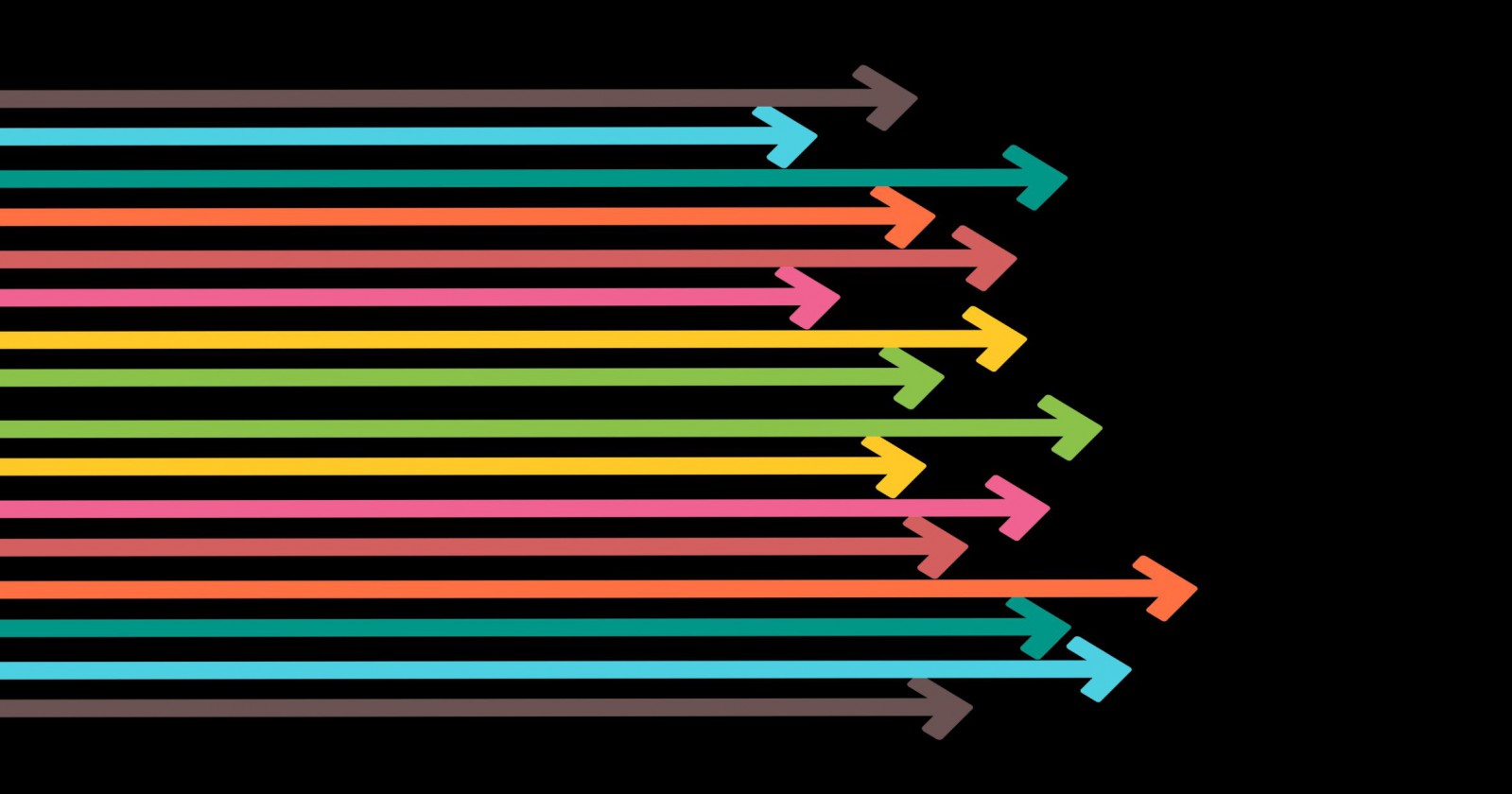
The life hacker ethos30.05.2019
We present an excerpt from the book Hacking Life: Systematized Living and Its Discontents, in which the autor – Joseph M. Reagle Jr. – analyses the phenomenon of hacking everyday activities.
Mark Rittman’s home is a web of sensors and control. Filaments of data pass between his house, his body, and the server in his garage. Door, motion, and temperature sensors monitor his environs. His iPhone and health band monitor him. Everything is logged for analysis, and controlling the lighting, temperature, and music is as easy as a request to Siri. With the addition of his latest gadget, the iKettle, Rittman hoped to ask Siri for a cup of tea. Better yet, he wanted to add the kettle to an automated morning routine: when the health band on his wrist noticed he was awake, it could alert the house to turn up the heat and lighting downstairs and have the kettle ready for when he got out of the shower. Unfortunately, Rittman had a hard time getting the gadget thousands following his saga: “3 hrs later and still no tea. Mandatory recalibration caused wifi base-station reset.” When he did get it online, the kettle did not work with his other devices: “To get my iKettle to actually work with Siri I had to hack this integration together myself.” He continued to tweet about this process, and when he finally succeeded, his story went global, starting with a report in The Guardian: “English man spends 11 hours trying to make cup of tea with Wi-Fi kettle technology.”
This project exemplifies the hacker mind-set: an enthusiastic—sometimes excessive—fascination with the workings of systems. But let us imagine another hacker who did not persevere on the technical front. Harper buys the iKettle on sale and, after tinkering with it over a couple of weekends, concludes that it’s hopeless. Worse yet, the receipt has gone missing. Fortunately, there is recourse to a different sort of hack: Harper remembers a post on the site Lifehacker, “How to Return Nearly Anything without a Receipt.” Harper opts for the last-ditch effort and waits a few more weeks until after Christmas to return the kettle. Even though there may be long lines, stores tend to be more lenient then.
Life hackers track and analyze their meals, finances, sleep, work, and headaches. They share tips on how to efficiently tie shoelaces, pack luggage, find dates, and learn languages.
Rittman, a big data analyst and self-tracker, pulled off his hack because he understood the technical systems underlying home automation. Harper pulled off the no-receipt hack because of an understanding of a different system: the dynamics of the shopping season. These two hacks are indicative of how, in the past ten years, the notion of hacking as a quick or clever fix to a technical system has been applied to all aspects of life. Life hackers track and analyze their meals, finances, sleep, work, and headaches. They share tips on how to efficiently tie shoelaces, pack luggage, find dates, and learn languages.
All of this might surprise those who associate hacking with criminals in hoodies hunched over green-type terminals, but it’s in keeping with the word’s origins. Sixty years ago, model railroad enthusiasts at the Massachusetts Institute of Technology (MIT) used hack to describe a quick fix to “The System,” the web of wires and relays under the train platform. Hackers are drawn to exploring, building, and manipulating such systems.
Today, life hacking sits at the intersection of technology, culture, and larger concerns about work, wealth, health, relationships, and meaning. It is the manifestation of the hacker ethos, an individualistic and rational approach of systematization and experimentation. For instance, some “biohackers,” as they call themselves, are experimenting with “Strategies for Engineered Negligible Senescence.” This name for life extension oozes confidence – it only makes “SENS,” after all. With the continued proliferation of technology, especially apps and connected sensors, this hacker ethos is appearing in many areas of our life that have never been engineered or hacked before. In addition to extending life, there are systems for increasing productivity, achieving material contentment, maximizing fitness, and finding romantic partners and pleasing sexual ones.
We can all use some help as our lives become increasingly governed and structured as systems. The term cult distracts us from the more interesting question: What does life hacking tell us about life well lived in the twenty-first century?
Some of this might seem a bit weird or extreme. Plenty of critics have pointed out life hacking’s pretensions and excesses. Yet the critics, too, have their excesses. One journalist describes the life hacker favorite Getting Things Done as “a holy book for the information age [that] is turning stressed-out worker bees into members of an unlikely new cult obsessed with keeping an empty inbox.” Calling enthusiasts a “cult” is catchy, but it’s also hyperbolic. We have all experienced moments of being overwhelmed by work and email. And what do these enthusiasts – a perfectly good word – and Getting Things Done have in common with a cult? No one claims the book is “holy” or inerrant. The author is neither semidivine nor especially charismatic. Readers are not required to abandon alternatives, recruit newcomers, or isolate themselves from friends and family.
Life hacking is an approach to life and a type of self-help. It has strengths, to which I am sympathetic given my own geekiness, and weaknesses, about which I have concerns. Yet these concerns are not because life hacking is alien and cultish. Rather, they arise because of its relevance: we can all use some help as our lives become increasingly governed and structured as systems. The term cult distracts us from the more interesting question: What does life hacking tell us about life well lived in the twenty-first century? We will see that life is increasingly like the iKettle, a complicated system. And to succeed, like Rittman, we must dedicate ourselves to mastering its rules.
Life Hacking Geeks and Gurus
A hacker is popularly understood as someone who breaks into computers: those who exploit system weaknesses for ill-gotten gain. Yet for those familiar with the term, it means something different. Yes, hackers often have a technical affinity. And like the model railroad enthusiasts at MIT, they do like to understand and explore systems. But for most hackers, a hack means a novel solution or fix, which is often shared. This includes clever fixes that are good enough and increments toward perfection.
Minimalists seek to pare down and live more simply, a goal often facilitated by technology. Pickup artists use systematic techniques and behavioral hacks to further their sexual interests. And those who focus on tracking their lives, such as steps taken or foods eaten, might identify with the Quantified Self movement.
Although sharing tips is not novel—recall Hints from Heloise—the term life hacking emerged among a handful of technically inclined writers in 2004. In February of that year, Danny O’Brien proposed a “life hacking” session at the O’Reilly Emerging Technology Conference in San Diego, California. O’Brien, a writer and digital activist, noted that “alpha geeks” are extraordinarily productive, and he wanted to speak “to the most prolific technologists about the secrets of their desktops, their inboxes, and their schedules.” The idea caught on. Within the year Merlin Mann launched 43 Folders, named for a way of organizing future tasks via folders, and Gina Trapani started Lifehacker, a site that remains popular today. Tim Ferriss took the practice mainstream with his 2007 best seller The 4-Hour Workweek: Escape 9–5, Live Anywhere and Join the New Rich. Although Ferriss does not make much use of the life hacker term—he sees himself as a self-experimenter in lifestyle design—his books and podcast make him its most famous practitioner.
Lifestyle design is an accessible label for those who want to reach an audience beyond those who identify as hackers—or even know what hacking means. Other labels speak to different areas of focus. Minimalists seek to pare down and live more simply, a goal often facilitated by technology. Pickup artists use systematic techniques and behavioral hacks to further their sexual interests. And those who focus on tracking their lives, such as steps taken or foods eaten, might identify with the Quantified Self movement. I consider all of this life hacking because of the shared enthusiasm for improving life via a systematic approach. This includes small tips, like how to peel an onion without crying, and weightier suggestions, like how to find contentment. It’s not a coincidence that the term life hacking emerged a few years after Richard Florida’s 2002 book The Rise of the Creative Class. Why do some regions in America do well relative to others? Florida argues that metropolises with the “3Ts” (technology, talent, and tolerance) correlate with growth. This growth is driven by workers who create “new ideas, new technology, and creative content,” including artists, engineers, writers, designers, educators, and entertainers. Members of the creative class, about 30 percent of the American workforce, “engage in complex problem solving that involves a great deal of independent judgment.” They accept or prefer flexible work even if it exceeds the bounds of the 9-to-5 workweek, are less concerned with dress and formality, and identify more with their profession than with their employer. Most relevant to life hacking, they feel that working too much is better than counting the minutes before the end of the day. And they tend to complain of too little time rather than too much work. Life hackers are the systematizing constituency of the creative class.
Among self-identifying life hackers, many are true to type, but there are, of course, individual differences. I’ve followed and spoken to many enthusiasts, online and in person, and even as they differentiate themselves—not all biohackers associate with the Quantified Self, for example—they have something in common. Even those who prefer the label self-experimenter or lifestyle designer share the life hacker ethos. They are rationally inclined individuals fond of systems and experimentation—whatever differences, distancing, and distinctions also exist.
One distinction that can be drawn among life hackers is between geeks and gurus. I make this distinction because most life hacking critiques focus on prominent personalities, especially Ferriss. Yet as important as he is, Ferriss is not a typical life hacker. He is a guru, someone who sells lifestyle advice and his role as its vendor. Even if guru is not always flattering, I do not use it as an insult. Pragmatically, guru is more concise than self-help author, life coach, or lifestyle designer. Analytically, it designates those who offer and are looked to for guidance. A recent documentary about self-help author Tony Robbins is subtitled I Am Not Your Guru. But he is a guru: he and Ferriss are professional advice givers. The question, then, is, What assumptions underlie their advice, and is that advice sound and worth what they charge? Geeks, on the other hand, are enthusiasts looking to fix their foibles and improve their quality of life. For example, later in the book we will meet a relationship hacker who shared her dating spreadsheet template so others could use or improve it. Many geeks similarly share their hacks and experiments— such is the nature of their enthusiasm—but few desire or manage to become professional writers and lifestyle coaches.Gurus do deserve scrutiny. They court publicity and argue others should pursue a course of action premised on unspoken assumptions and financial gain. The former attracts our attention; the latter deserves it. Even so, we should not lose sight of life hacking as a subculture of those sharing tips and tools for a better life.
Excerpted and adapted from Hacking Life: Systematized Living and Its Discontents by Joseph M. Reagle, Jr. (The MIT Press, 2019).
see also
- Damon Krukowski | Time is Flexible

Trends
Damon Krukowski | Time is Flexible
- Wi-Fi to Become More Efficient in the Standard’s Biggest Upgrade in Twenty Years

News
Wi-Fi to Become More Efficient in the Standard’s Biggest Upgrade in Twenty Years
- The Beatles: Get Back: See the Exclusive First Look at Peter Jackson’s Documentary About the Band

News
The Beatles: Get Back: See the Exclusive First Look at Peter Jackson’s Documentary About the Band
- Microsplastic Pollution a Growing Health and Environment Hazard

News
Microsplastic Pollution a Growing Health and Environment Hazard
discover playlists
-
Branded Stories PYD 2020
 03
03Branded Stories PYD 2020
-
CLIPS
 02
02CLIPS
-
Nowe utwory z pierwszej 10 Billboard Hot 100 (II kwartał 2019 r.)
 15
15Nowe utwory z pierwszej 10 Billboard Hot 100 (II kwartał 2019 r.)
-
Papaya Young Directors top 15
 15
15Papaya Young Directors top 15
